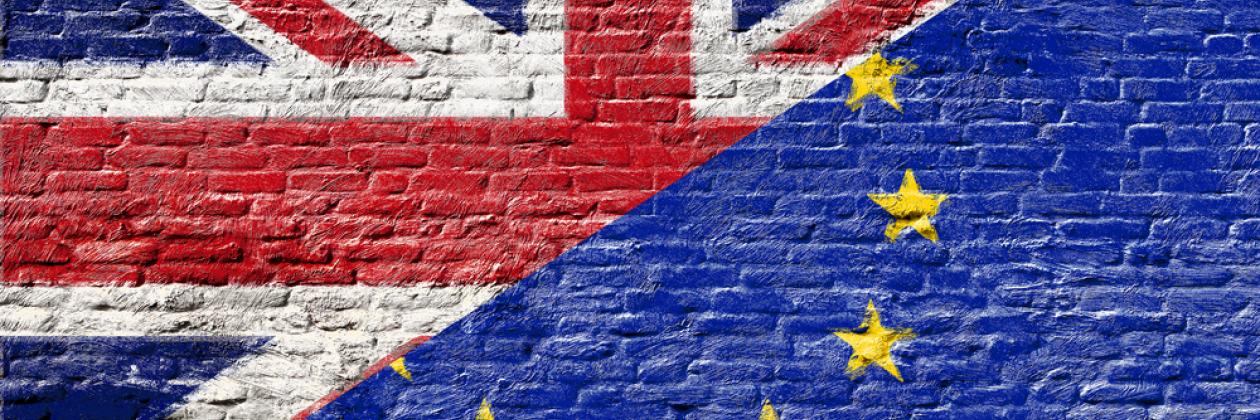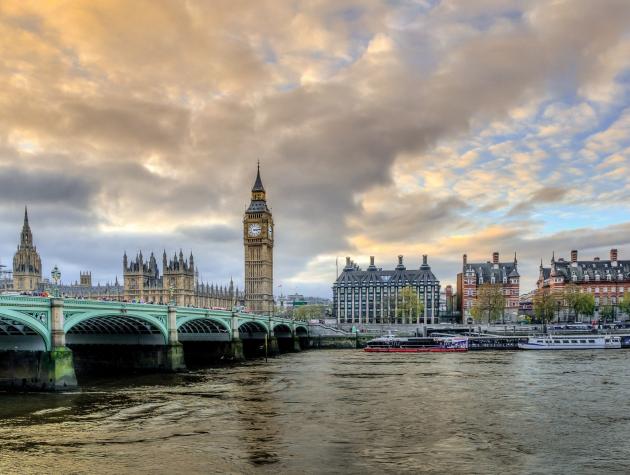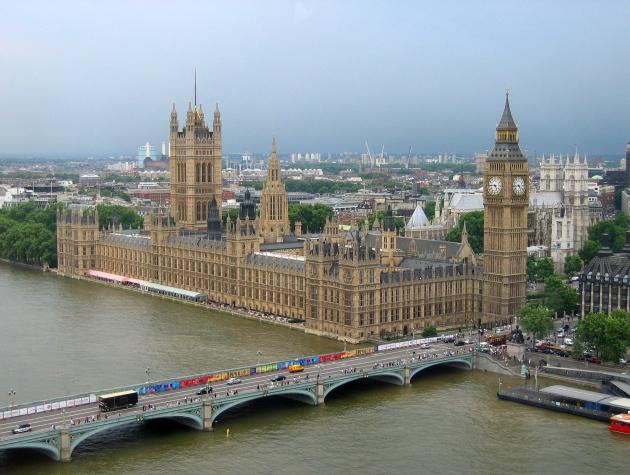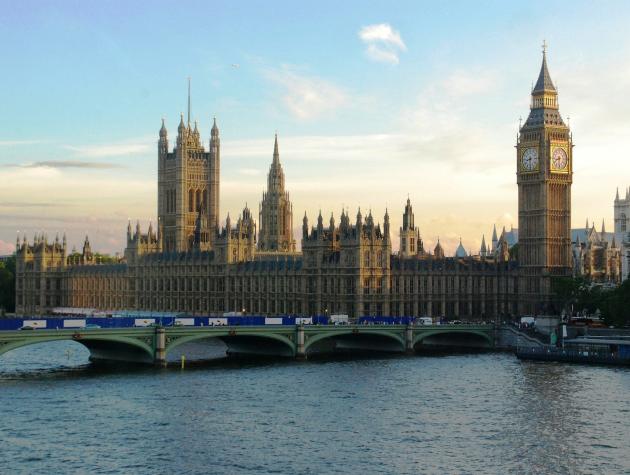Brexit: Opportunity or peril for trade with small and poor developing economies?
The UK is rethinking its position in global trade. In the wake of the UK’s EU referendum and the vote to “leave,” the government has created a new Department for International Trade and is busy re-deploying several hundred civil servants to staff it. Yes, after more than 40 years, trade negotiations are seeing a revival in the UK. They are suddenly all the talk in town.
Crucially, if the UK does exit the EU, then under all conceivable scenarios it will need to renegotiate its trade relations with third parties. This is vital for developing countries as they all access the UK market on preferential terms, through a myriad of agreements that have been brokered by the European Commission. If the UK leaves the EU, these agreements will no longer apply, and quick action will be needed to avert the severe trade disruption that faces some developing countries. Yet Brexit may offer a silver lining: precisely because new trade arrangements will need to be agreed, it provides developing countries with an opportunity to restructure and improve their trade relations with the UK.
Trade with the UK is vital for some developing countries
The headline figures suggest that the UK isn’t a major trade partner for many developing countries. Over the past five years the UK accounted for just over two percent of exports of goods from developing countries and four percent of exports from least developed countries. For the largest developing countries, including China, India, and Brazil, the UK accounts for less than three percent of exports on average. While these countries may find interesting new opportunities in forging deeper links with the UK, they don’t face a major threat of trade disruption in the event of a UK exit from the EU.
The reality is very different for some small developing countries that rely heavily on the UK market (see Figure 1). Belize, for instance, sent nearly one quarter of its goods exports to the UK over the past five years. Other countries that rely heavily on the UK for their exports include Mauritius (20%), Fiji (15%), Gambia (14%), Sri Lanka (11%), Bangladesh (10%), and St Lucia (9%).
These countries typically export a narrow range of products that would not be competitive on the UK market in the absence of preferences. Alternatively put, were the UK to exit the EU without a mechanism in place to safeguard existing preferences, garments and textiles factories in Bangladesh, cane sugar producers in Mauritius, Fiji, and Belize, and smallholder banana farmers in St Lucia could go out of business overnight. As these economies are heavily reliant on external trade, the economic impact of any disruption could be substantial. By way of illustration, exports of goods and services as a percentage of GDP in 2013 were 61 for Belize, 49 for Mauritius, and 57 for Fiji.
Figure 1
Source: Author’s own, data sources listed below.
Preferences key for developing country access to the UK market will expire
All developing countries currently have preferential access to the UK market under the EU’s Generalized System of Preferences (GSP) scheme. Under this scheme, developing countries pay lower tariffs than developed countries to access the EU market, while the latter have to rely on the EU’s most-favoured nation (MFN) tariffs which are agreed at the WTO.
By far the most valuable aspect of the EU’s GSP scheme is the Everything But Arms programme that has provided duty-free quota-free access to the EU market to all least developed countries since 2001. This scheme has been particularly important for cultivating new revenue streams in some of the world’s poorest nations, including Bangladesh and Cambodia, which depend on the scheme to export garments.
Many developing countries also have valuable preferential access to the UK market through EU free trade agreements. At present, the EU has trade agreements with just over 50 countries, most of them developing. These include Mauritius, Fiji, Belize, and St Lucia.
In the event of a UK exit from the EU the EU’s GSP scheme and the EU’s free trade agreements will no longer apply. In the absence of a new arrangement developing country exporters will no longer have preferential access to the UK market.
Brokering new preferential access important for developing countries
If the UK leaves the EU, a new arrangement will need to be agreed for UK-EU trade relations, and under all scenarios trade relations between the UK and developing countries will need to be reconfigured. Six broad scenarios are possible: the Norway scenario where the UK joins the European Economic Area (EEA) and is part of the EU single market; the Swiss scenario where the UK joins the European Free Trade Area (EFTA) but stays out of the single market and relies on a series of bilateral deals to access the EU; the Turkey scenario where the UK is in a customs union with the EU but is not in the single market or EFTA; the Canada scenario where the UK negotiates access to the EU market based on a new free trade agreement; and the WTO scenario where the UK relies on WTO tariffs to access the EU market as the US does now.
While the debate in the UK is focused on the differences between these various scenarios for the UK economy, they all have similar implications for the structure of UK trade relations with developing countries. To see this, it is helpful to examine the Norway model, which from the UK’s perspective is the closest to the current status quo.
Under the Norway scenario the UK would be part of the EEA and would stay in the EU single market. The vital difference is that under this and all the other scenarios the UK would manage its own external trade relations. Like Norway, the UK would not be party to the EU’s preferential trade agreements with third parties. The UK may decide to devise a new scheme for granting developing countries access to its market; Norway has its own Generalized System of Preferences, which is modelled on the EU’s and includes duty-free quota-free access for least developed countries.
The UK would also need to negotiate its own free trade agreements and economic partnerships. If the UK joined EFTA it could negotiate free trade deals together with Norway, Iceland, Switzerland, and Liechtenstein, which have free trade deals covering 38 countries. Alternatively, and more likely, the UK could go it alone to strike its own deals.
The UK would no longer be party to the EU’s common external tariff. Instead, like Norway, the UK would have discretion over the MFN tariffs it sets. If the UK dramatically lowers its MFN tariffs, or declares “unilateral free trade” as some Brexit supporters have advocated, this will create winners and losers among developing countries. While many would welcome increased market access, countries that currently enjoy high margins of preference into the UK market would face preference erosion.
A temporary bridging agreement will be needed
The costs of trade disruption from “Brexit” could be very high for some small developing countries. Yet brokering new free trade agreements with these nations and devising a new GSP scheme is unlikely to be top of the UK’s priorities as it focuses on averting its own trade disruption. The ball is therefore squarely in the court of those developing countries that stand to be most affected by a change in UK preference arrangements following withdrawal from the EU.
To ensure trade is not disrupted developing countries could club together and work with legal experts to identify a creative “bridging arrangement” that the UK government can implement while a more permanent solution is worked out. For instance, it may be possible for the UK to simply replicate the EU’s GSP schemes for a limited period, pending the development of its own. Given how stretched the UK government will be, any solution will need to be relatively simple, and quick to implement. Developing countries have ready allies in the UK for this task, ranging from the UK’s Department for International Development, to non-profit groups that have championed fair trade, and British businesses whose supply chains would be disrupted.
Shaping UK-EU relations
Developing countries also have an interest in the nature of UK-EU trade relations after Brexit. The Norway scenario is the only option that would continue to provide almost seamless access to the EU’s single market and under which the UK would mirror most EU regulations. Other scenarios offer varying degrees of integration and alignment of a myriad of rules affecting trade between the UK and the rest of the bloc.
This matters for developing country exporters and investors. If rules and regulations in the UK and EU start to diverge, exporters from developing countries will have to keep abreast of, and comply with, new requirements ranging from rules of origin, to product standards, and labelling. Brexit may then require a reconfiguration of business models by developing country investors that use the UK as a base for smoothly accessing the EU market. Jaguar Land Rover, one of the UK’s largest car manufacturers and majority owned by the Indian company Tata Motors, is a case in point.
As the UK and EU start to negotiate new trade relations, developing countries will need to identify the implications for their exporters and investors, and look for ways to shape or respond to these negotiations.
A silver lining?
There may be a silver lining for small developing countries in all of this. The UK has a track record of pushing the EU to open up its markets to developing countries because, unlike for many southern European countries, imports from developing countries don’t compete directly with its own producers. Assuming that the UK doesn’t declare unilateral free trade, developing countries, particularly least developed countries, should identify areas where it would be valuable to have greater access to the UK market. In a post-Brexit world, they may be pushing on an open door.
This article first appeared on ICTSD Opinion.
Sources: Trade data is sourced from http://comtrade.un.org/ accessed via Comtrade on 14 July 2016. Exports to GDP data sourced from World Bank national accounts data and OECD national accounts data files accessed on 15 July 2016. Calculations are the author’s own. Data was averaged over the most recent five years for which data is available (2011-2015). Where data was missing, it was averaged for the available years. On EFTA’s FTAs see here. On Norway’s GSP scheme see here.







